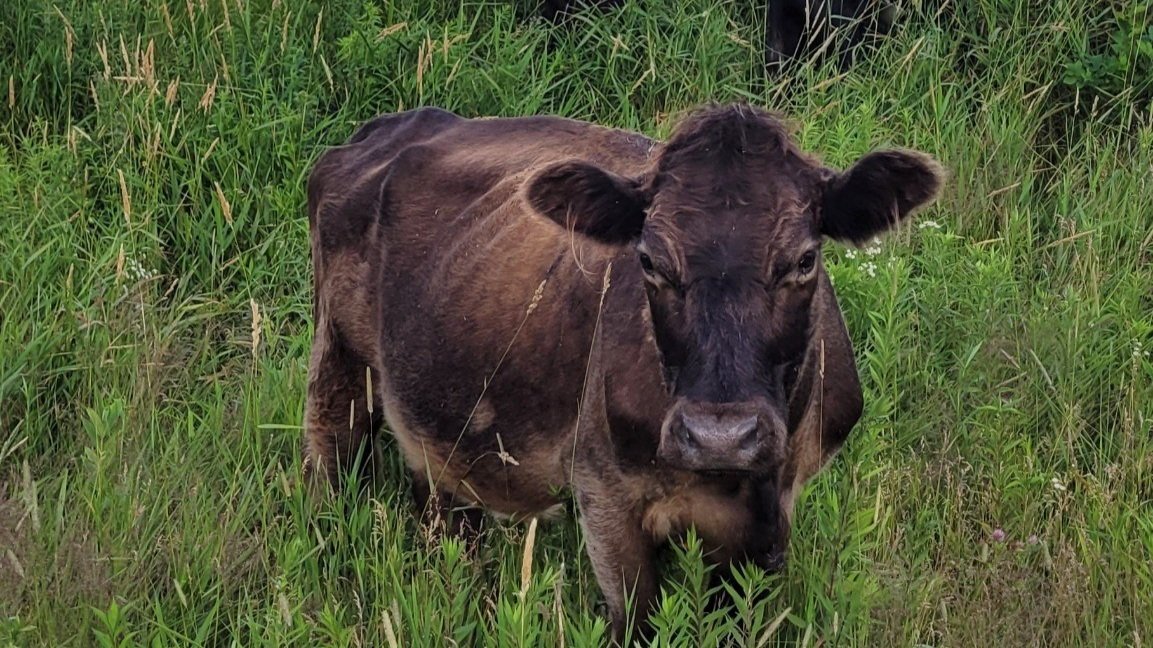
Frequently asked questions.
How do I order?
To order, please fill out the contact form on our contact us page. You may also order over the phone or via email. For product availability, please call or email Jeff.
Please specify what you are looking for and the amount or weight of the product. Packages are also available for both pork and beef.
When placing an order for the future, we may ask that you make a deposit to hold your order. Checks can be made out to Fossland Farm and mailed to us. If you are placing an order for a product we already have, you do not have to make a deposit.
Do you do delivery?
For large orders or convenient locations we can deliver. Within 50 miles delivery will be at no cost. Over 50 miles will require a delivery fee. We do always encourage visits! Just let us know if you’d like to pick up your order at the farm.
Why grass-fed? Are there health benefits?
Grass-fed is more than just a buzzword. Livestock kept grass-fed result in a product with less fat and a lower number of calories. Additionally, grass-fed beef offers considerably more omega-3 fatty acids, antioxidants, electrolytes, and beneficial fats. Customers can also enjoy grass-fed beef as a source of vitamins–A, E, and B12–and minerals–iron, selenium, zinc, and phosphorus.
What’s the difference between grass-fed and pastured?
They may sound like the same thing, but there are differences. Grass-fed means the livestock ate grass or hay their entire lives. Pasture-raised means the livestock spends much of their lives on field forage, but may use grain to supplement the diet in colder climates.
What are regenerative farming practices?
Regenerative farming practices are techniques farmers use to better the health of the soil and reduce or even reverse the effects of climate change. If you compost, then you’re using a regenerative farming practice! At Fossland farm, we have implemented a number of regenerative farming practices including: crop rotation, cover crops, composting, animal integration, forest buffers, water and sediment basins, created a pollinator habitat and more.
What is rotational or adaptive grazing?
Rotational grazing is another regenerative farming practice, focusing on the health of both the pastures and the animals that graze in them. By moving livestock from one field to the next each season, pastures can grow deeper roots and regenerate. This process eliminates waste and also improves the potential diversity of plant species in the pasture. It can also reduce herd health issues and pesticide usage.
Do you have seasonal offerings?
We do! In the fall we raise turkeys for holiday meals throughout the Minnesota area. In the summer, we offer sausages of all stripes: from jalapeno and beer brats to original and polish. We’ll let those who’ve subscribed know what we have on offer in our news letter, and our followers on social media through posts on Facebook. You can also always find our seasonal offerings (when available) here.
What is your return policy?
Fortunately our customers enjoy our offerings so much we rarely have to deal with this. However, if for some reason you’re looking to make a return, as long as you made the purchase in the last two weeks and the packaging has not been opened, we will accept returns.
How and where is the meat processed?
Processing is fully locker. If you have a locker you would prefer to use and have an appointment, we can deliver your order there.
What are nitrates / nitrites? And what are they doing in my bacon?
Believe it or not, our bodies naturally produce these chemical compounds! They also occur naturally in a lot of foods, like spinach, beets, and lettuce.
In meats they are used as a preservative. They keep harmful bacteria out of food, essentially preventing food poisoning. Our goal is always to provide the best bacon and ham we can. When products are more susceptible to bacterial growth, a preservative like nitrate will be added. While high nitrate intake is associated with health risks, nitrates can be consumed safely in normal portions.
Can I get “Organic” or Nitrate free processing?
Our livestock meets the criteria for organic certification, including: year-round pasture access, grass and forage feed, and hormone-free raising. Check out our list of products to view the ingredients of each.
See something you’d like to enjoy nitrate free? Let us know! If there’s enough interest, we’re happy to speak with our processor about a nitrate free option.
